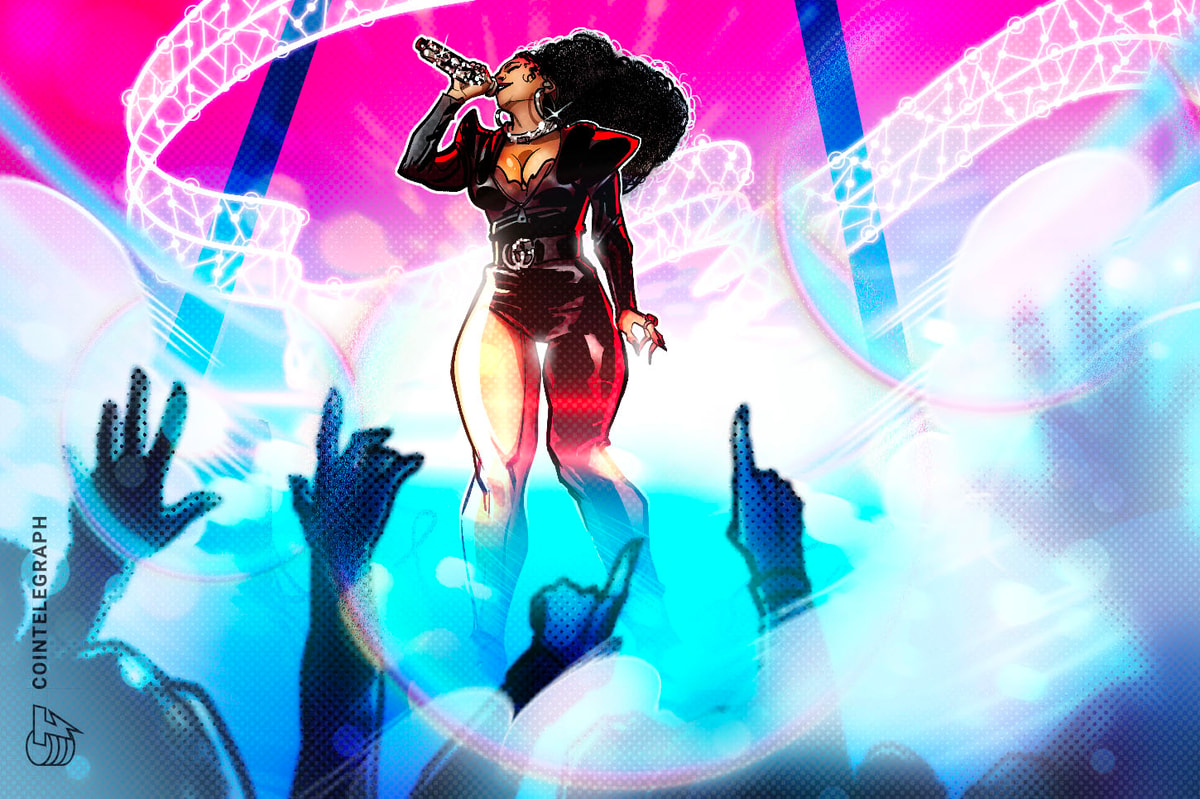The term “metaverse” is becoming increasingly common, but while many people have likely heard it used, they often don’t know what it means. It can be

The term “metaverse” is becoming increasingly common, but while many people have likely heard it used, they often don’t know what it means.
It can be difficult to explain the term to someone outside the Web3 space, as the metaverse is still relatively new and evolving. The most important thing to know is that it has the potential to revolutionize the internet and how people live, work and play.
The metaverse is a new frontier of innovation and creativity, centered a great deal around media, which should come as no surprise since many Web2 apps are as well, especially music.
There are entire social media platforms dedicated to sharing music, and those that aren’t have incorporated music in other ways. While this has increased awareness about music licensing in digital spaces, it has also highlighted that some systems in place are outdated and struggling to keep up with the breakneck pace of new technology.
With new possibilities for music in the metaverse, the current licensing system may need to be revamped, given the changing ways music is created and consumed, especially with Web3 innovations like nonfungible tokens (NFTs).
Music in the metaverse has had great success. Many top-name artists have performed concerts in the space, and many artists have seen the appeal of releasing music as NFTs.
Despite the uncertainties and the evolving landscape of Web3, licensing music in the metaverse has massive potential.
Current licensing challenges
Technology is rapidly advancing in the Web3 space, and given how new it all is, there are many kinks to work out. Presently, the metaverse is all about experimentation, so if something fails organically, it will serve as a lesson to others.
Despite much experimentation in the metaverse, licensing remains undeveloped. For Web2 social media platforms, there is a known standard on licensing, and what can and cannot be done. This does not currently exist in the metaverse. The mixture of set standards and laws surrounding copyright and licensing isn’t as concrete as needed for a solid licensing landscape.
Spottie Wifi, a musician and Web3 proponent, sat down with Cointelegraph to discuss the current state of licensing in the metaverse.
“There is a difference between traditional licensing for music and licensing music in the metaverse. The main difference I have seen is that a music license for the metaverse needs to clearly include the metaverse as a distribution channel listed within the scope of the license, or the scope of the license should be so broad that the metaverse would naturally be included,” he said.
Recent: Best and worst countries for crypto taxes — plus crypto tax tips
This would undoubtedly be a simple solution to what is often seen as a nuanced issue. Still, compared with Web2, there are complications around music licensing in Web3 — thanks to NFTs.
.@SpottieWiFi is the best (only) @cryptopunksnfts rapper alive.
He disrupted the music industry in August 2021 by selling 2000 NFT albums and generating $192K in revenue in under 60 seconds as an independent artist. pic.twitter.com/iTVrNpvDzl
— NFT MELBOURNE | 23.03.23 | Tickets on Sale Now! (@NFT_MELBOURNE) March 21, 2023
“I recorded a concept album in 2021 about life in the metaverse, and I sold the album as an NFT collection, which grants the NFT holders a license to use and commercialize the music however they like while I still retain ownership of my masters and publishing,” added Spottie Wifi.
“There are NFT collectors that use music in this way in the content they develop, including metaverse experiences, video games, podcasts, films and advertisements.”
Musicians want to avoid exploitation and ensure that their music is used appropriately. This requires properly enforcing intellectual property (IP) rights, which is a complicated process in the metaverse.
“For now, the most effective means of enforcing IP rights as a songwriter in the metaverse is probably to simply enforce those IP rights on Web2 platforms like YouTube, Instagram, etc., through what is known as Content ID. Content ID is an automated system that removes content from those platforms if that content infringes someone’s music copyright,” Spottie Wifi explained. “This can help enforce copyright in the metaverse because a lot of content that is broadcast in the metaverse still comes from those Web2 platforms.”
This brings to light another issue surrounding copyright. If users can create their own virtual spaces or events within the metaverse, they will likely want to include copyrighted music as a part of their creation, just like on social media platforms. This could raise issues around obtaining the necessary licenses to use the music, and monitoring and enforcing those licenses.
As the metaverse is likely to be global, determining who monitors and enforces licenses could pose challenges because copyright law, performance rights, music licensing and regulation would be cross-jurisdictional. The global aspect also…
cointelegraph.com
